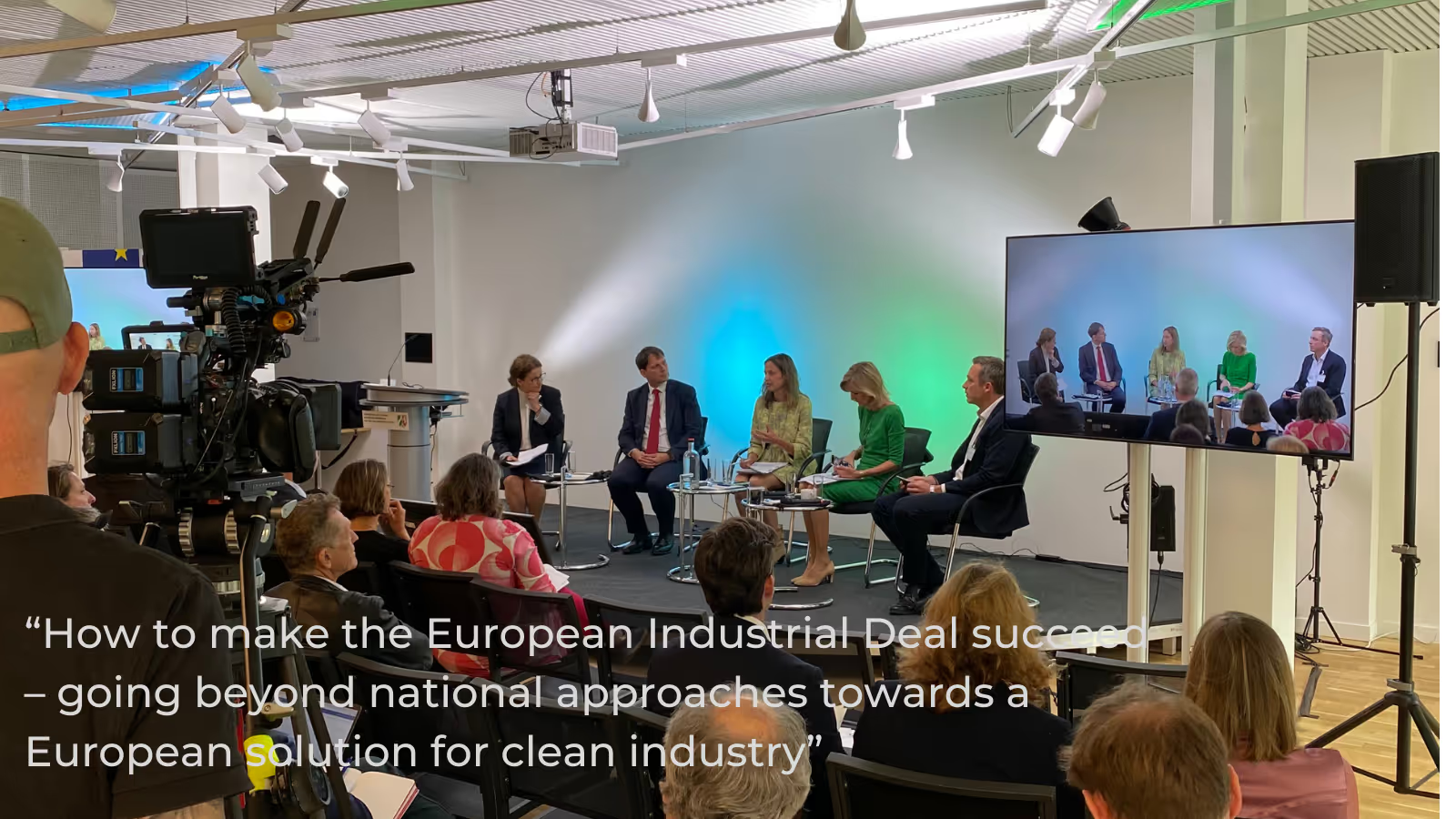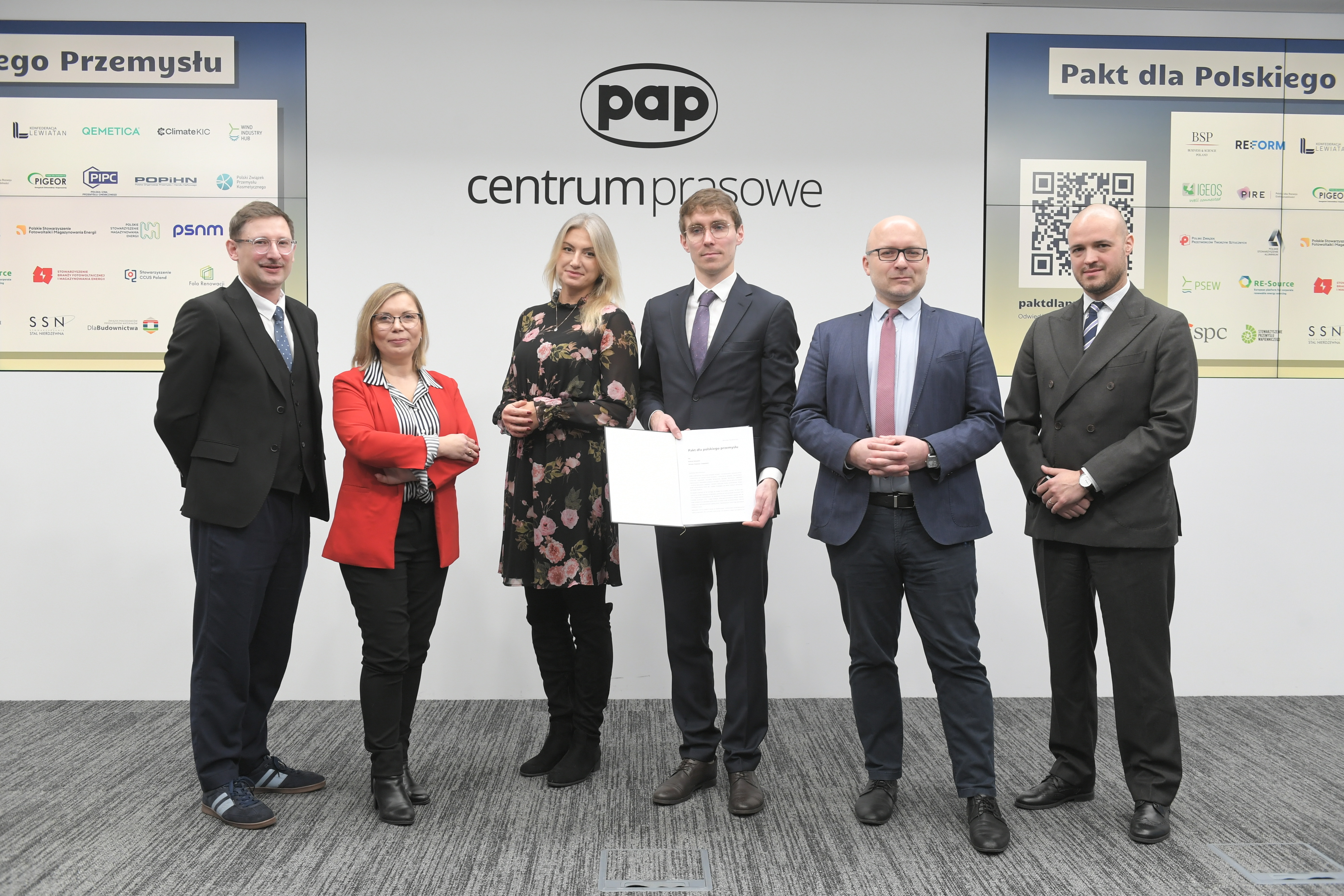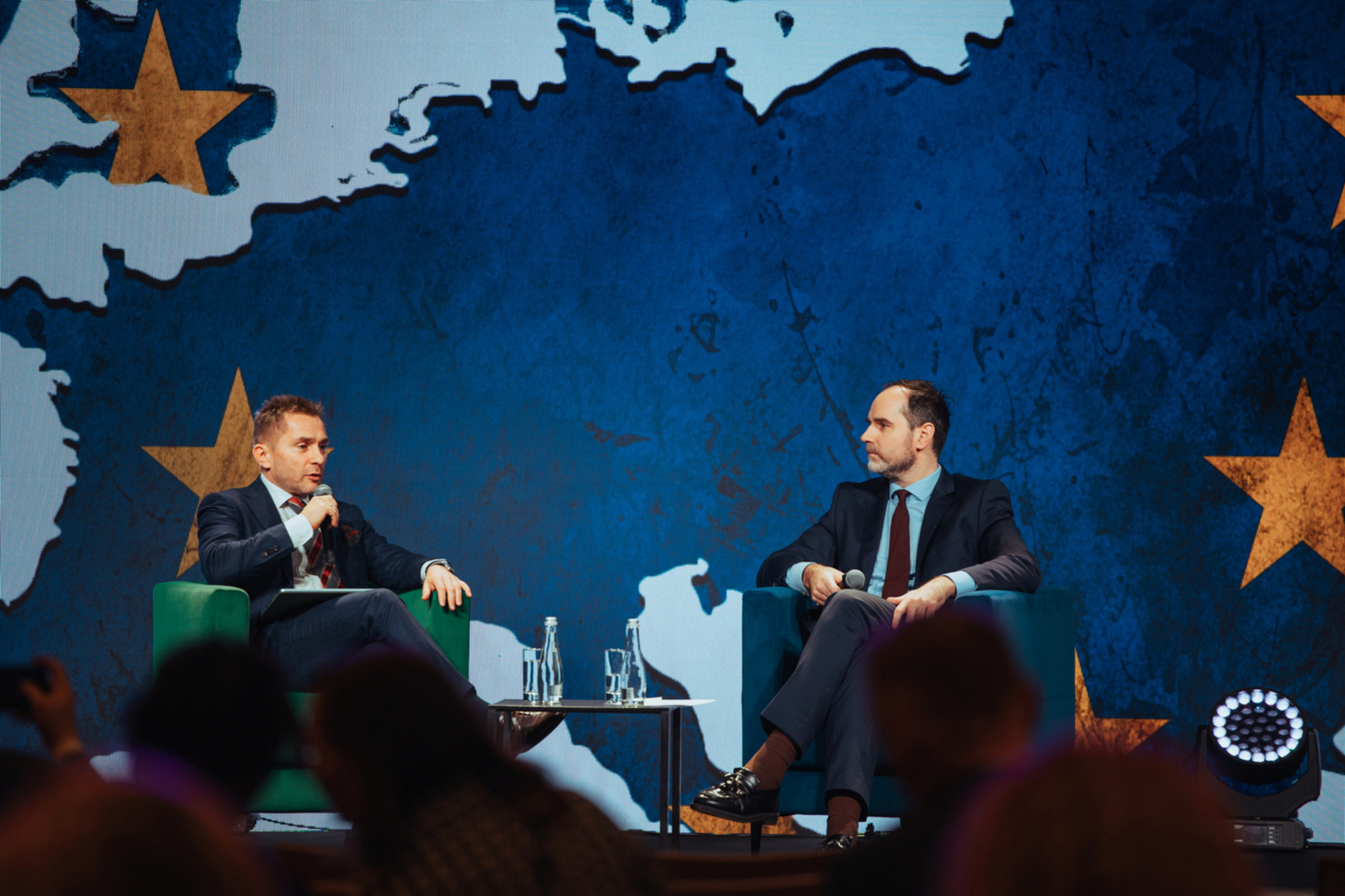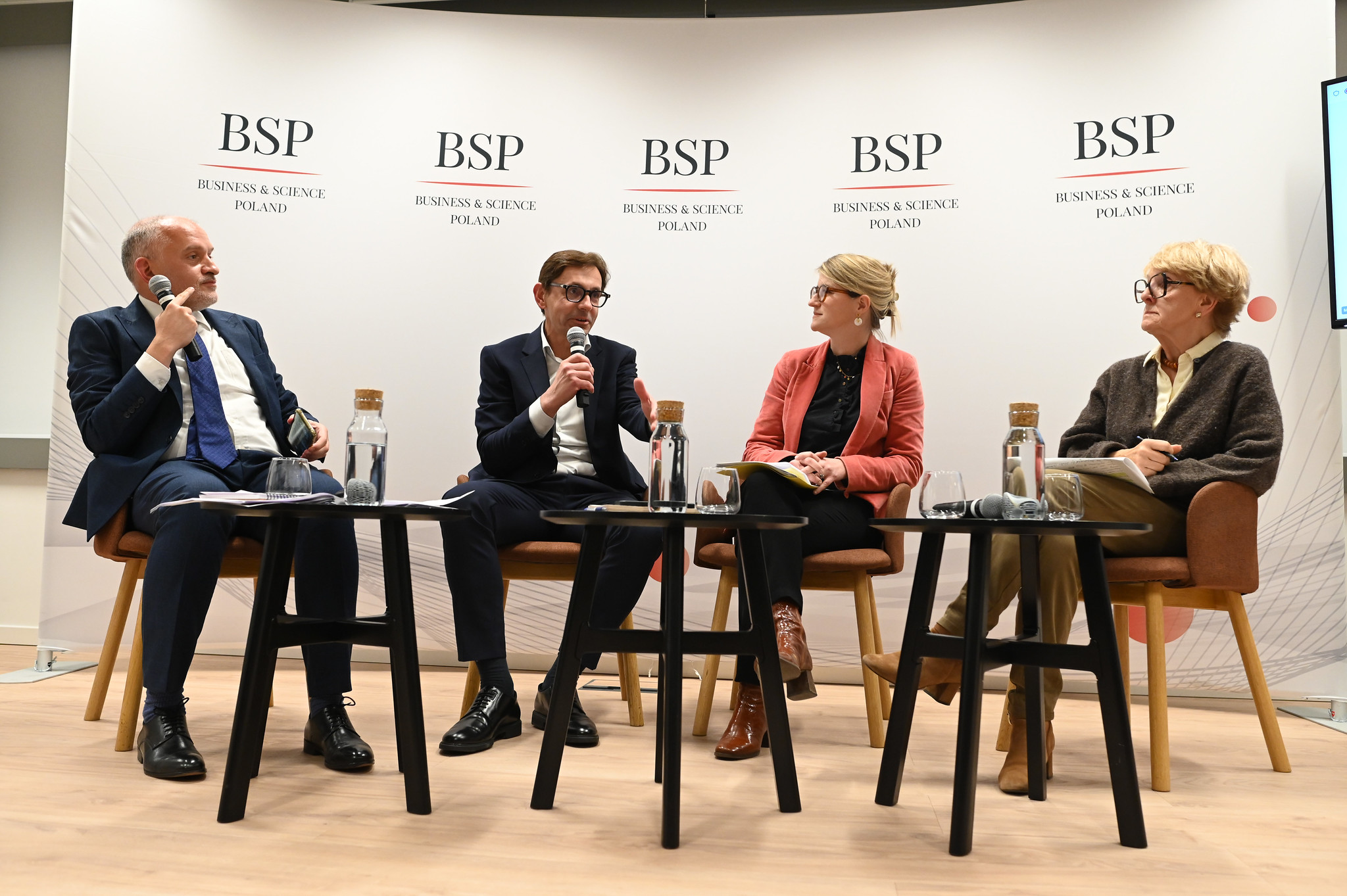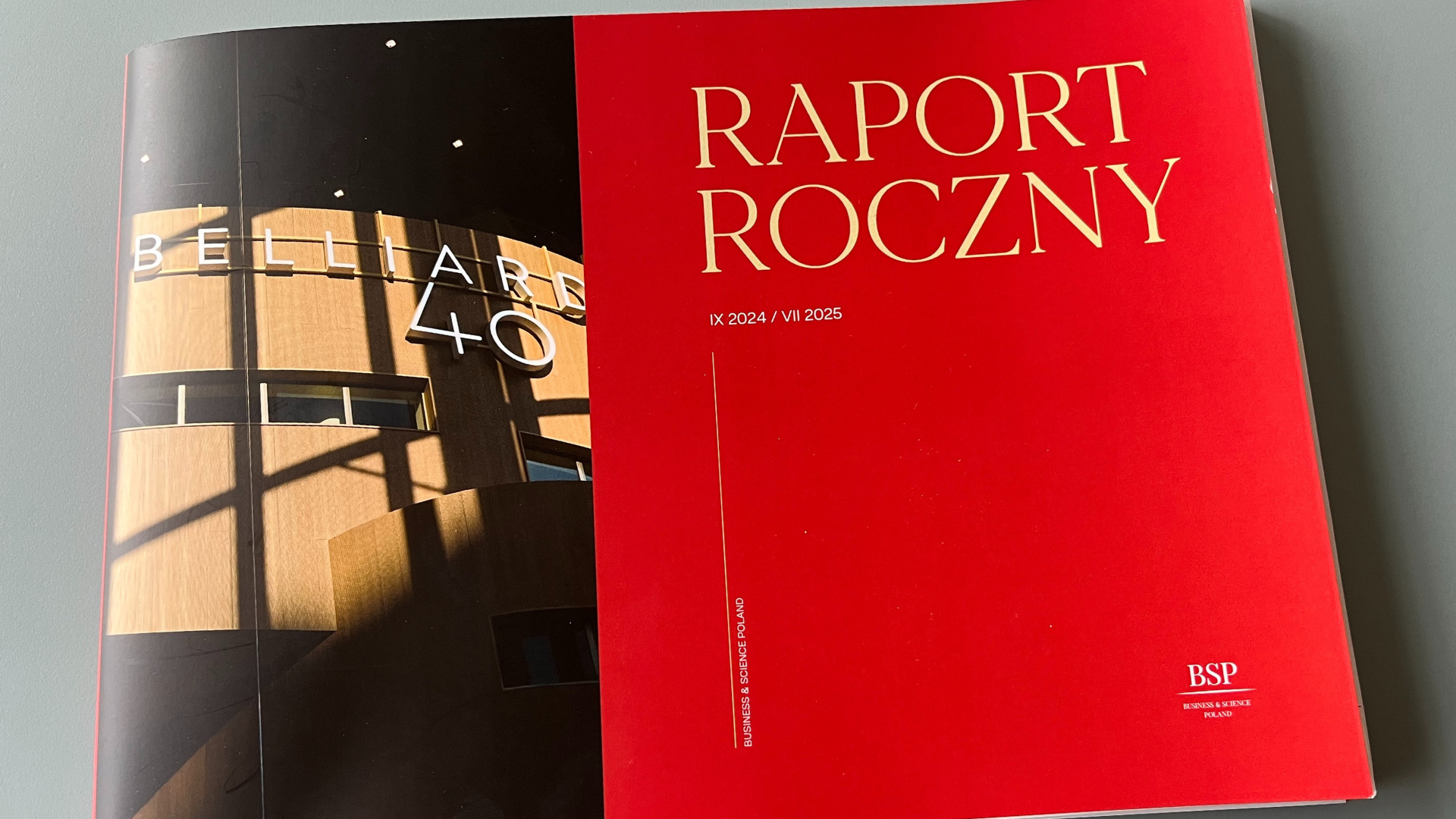The BSP team took part in an event organized by the Representation of North Rhine-Westphalia to the EU, entitled “How to make the European Industrial Order a success - moving beyond national approaches towards a European solution for clean industry” The event, co-organized by IDDRI, the Energy Forum and Agora Industry, focused on the conditions necessary for the development of clean European industry, current shortcomings EU policy in this area, as well as potential solutions for unlocking industrial capacity and the potential to increase the production of climate-friendly technologies.
In a panel discussion entitled “How to promote clean production in Europe in the face of global competition?” Joanna Maćkowiak-Pandera (President of Forum Energii), Ann Mettler (Vice President Europe, Breakthrough Energy), Jacek Truszczyński (Deputy Head of Unit at DG Grow) and Karol Wolff (Strategy and Strategic Director - ORLEN) discussed the possibilities of developing a clean industry in conditions of global challenges and competition from China and the USA.
During the panel, Dr. Maćkowiak-Pandera pointed to excessive regulation as a potential problem in enabling the proper development of clean industry. As a solution to the current impasse in green technologies, she suggested the use of tax breaks and strong industrial policy incentives. She also stated that it was unfortunate that EU societies - in particular Poland - had an increasingly negative view of the European Green Deal, and that this should be countered by focusing on its pragmatic rather than ideological dimension.
Ms Mettler emphasised the need to take account of business and economic conditions which, in her opinion, were not sufficiently taken into account when conceptualising the European Green Deal. She also highlighted the polarising nature of EFAs in EU societies, and stressed the need to create new, practical ways of thinking that would help break down the merits of introducing them first. In addition, she said the EU needs to move to the “higher links” of value chains in the technological areas in which it wants to compete. It also considered that allowing operators to operate in EU markets while they are subsidised elsewhere is a strategy that is very damaging to European industry. At the end of her speech, she stressed the need to reduce the risk posed by investment in innovation by encouraging institutional investors and philanthropy to take ownership of the costs of innovation development. She stated that it is irresponsible to expect companies to take huge business risks to meet certain requirements and amounts dictated by the EFTA, in a situation where they do not have any support framework.
In turn, Karol Wolff presented ORLEN's projects in the area of renewable energy sources, as well as the company's prospective approach to decarbonizing its business. He stressed the potential of small modular reactors, with their capacity to produce heat electricity, as having an important role to play in the decarbonisation process of industrial plants. He also stated that CCS (carbon capture & storage) technology would have to be implemented in a complementary way to mitigate the effects of emissions that are difficult to reduce (“hard to abate” emissions).
Director Wolff also pointed out that the EU should create a policy that would allow for rapid scaling of promising clean technologies coming from industrial startups that do not have the ability to do so on their own, mirroring Ann Mettler's remarks.
Jacek Truszczyński, representing the European Commission, stated that the EU, in principle, knows in which direction it should go when it comes to achieving its 2030 climate goals - including investment and further development of renewable energy sources and power grid capacity. He also stressed the need to match demand with supply by finding the right customers, as well as having a strong industrial leg to complement the core assumptions of the EGD.
All panelists agreed that there is a potential risk of deindustrialization in Europe, present, among other things, due to the advantages of cheaper global competition. They also agreed that there was a need to supplement the EGTC with appropriate pro-market incentives and pointed out the pitfalls of re-evaluating regulation as a source of the right direction for the development of high-tech industrial areas.
The BSP team is following the development of the debate on the future industrial policy of the EU.

